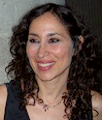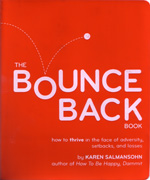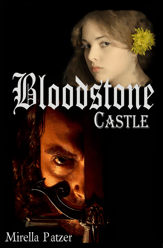A Word From Karen Salmansohn
Topic: Blog Tours
My Vortex lasted about a year, during which time so many bad things happened, I kept waiting for a Candid Camera crew to appear from behind the planter in my living room. First, the real estate broker, real estate lawyer, and moving company I hired found sneaky ways to rip me off. Next, a longtime business buddy hired me to package new groovy chocolate bars, then never paid me.
But those were nothing compared to the lowest point in my Vortex: a sexual assault-which came out of nowhere-by someone I knew as an acquaintance. As soon as I managed to get free and far away from my assaulter, I called my close friend Eric Gertler, an ex-boyfriend and ex-lawyer. I figured because he knew both the law and me intimately, he'd be a wise adviser. We met at our regular café. I was in tears.
"How could someone be so...so...so evil?" I asked.
"People aren't evil. They're weak," said Eric.
Weak? This word somehow calmed me.
Later when I tried to understand why I preferred the word "weak" to the word "evil," I realized that "weakness" meant there was at least hope for change in someone who'd done something evil-and most importantly, hope for me to find a way out of my Vortex by choosing not to be weak myself.
That's when it hit me. In life, you always have a choice.
Be weak or be strong.
Whichever of these paths you choose will determine your ability to bounce back from life's myriad setbacks, crises, or traumas. If you want to survive life's many challenges, you must put in the conscious effort and discipline to be a strong person. It's essential you create a fiery will from within-harness that power of decisiveness-and choose to be your strongest self. I realize that it's easier to lounge around in depression and angst than to rise above challenging circumstances. Believe me, I know because at first I chose to follow this weaker path.
Initially I was totally traumatized by my sexual assault. I started experiencing anxiety around people. If I'd be writing in a café and a stranger chatted me up, my left eye would twitch. And no, it wasn't the caffeine. (Trust me. I'm a pro at espresso. And I'm a pro at casual conversation with strangers.) Basically, after the assault my automatic tendency was to keep all people at a distance. I had trouble trusting anyone. Even people I'd known for years. After all, I'd witnessed how people could change in a moment. And so I pretty much became paranoid about everyone I came into contact with. Especially men.
Then I gained weight-12 pounds-which is a ton on my 5-foot-3 frame. Maybe subconsciously I figured there was safety in creating a big wad of fat between me and men's sexual urges. It was easy to gain weight. I had all this chocolate around my apartment from the nonpaying chocolate business buddy. He was a bad businessman, but he made some damn good chocolate!
Soon enough, this upward weight gain created a further downward emotional spiral. I began feeling bummed about my bigger bum, which further increased my yearning to stay inside away from people and close to my chocolate bars. I was a self-help author! Why couldn't I help myself get through this? Sometimes, when I saw the growing discrepancy between who I was and how I was behaving, I'd mutter to myself in a kind of mock-voiceover: "Behind the scenes of the self-help book author..." as I unwrapped another chocolate bar
Who you truly are as a person is best revealed by who you are during times of conflict and crisis. It's easy to be your strongest, highest self when things are rolling along smoothly. But how you handle life's setbacks and traumas reveals your authentic character. If you can be strong during challenging times, then...well, you truly ARE a disciplined and spirited person. And this identity makes you not only a very cool person but a very happy person.
Just as it takes willpower to choose to stay on a healthy diet during times of great temptation, it also takes willpower to choose to remain a positive and happy human being during times of crisis. Basically, to live a happy life-with all of life's multiple challenges-takes effort and work. Happiness is not for namby-pambies!
For this reason, you need to develop a long-term vision for what you uniquely value-what you know makes you the happiest-so you can stay focused on these values, no matter what your trials and tribulations. I know what I value: I need to feel loving, loved, creatively charged, healthy, sexy, self-confident, and as if I am continuously growing. (Note: not in thighs but in mind and spirit!) I also know: Life is constantly testing our ability to feel those things.Actually, if there were a single instructional goal for living your best life it might be "Keep your eye on the prize of happiness, even when caught in the eye of the storm-or Vortex."
Guess what else? Lucky unlucky us: Often the greatest happiness in life comes from going through a crisis-and growing into a stronger, better person. In fact, Aristotle, one of my favorite philosophers, wrote in great detail about how true happiness does not come from experiencing pleasures of the body and ego but from having experiences that stimulate your core self-your "soul"-challenging and inspiring you to grow into your highest potential as a person. You know how sharks need to keep on moving to stay alive? We humans need to consciously keep on moving forward emotionally if we want to keep our spirits alive-or else our spirits will fizzle and fade. Basically, you're either growing into a bigger, better person or shrinking into a lowly, bitter person. And by "growing," I don't mean simply reading lots of self-help books, doing yoga, eating granola bars, and having highfalutin', ego-tootin' intellectual conversations. There's an old expression: "There are those who know where it is, they just don't know WHAT it is." It doesn't matter how many books you read or meditation classes you take if you're only going through the motions without experiencing true inner growth
So WHAT is "growing"? Putting in the emotional effort to improve who you are as a person-facing your core pain-and working to stretch yourself to become your strongest, wisest, highest-level self. Yes, I believe the greatest reward out there is actually not OUT there at all. It's an INSIDE job! The greatest reward is knowing that you are refusing to settle for being anything less than you can be. And there's nothing more fulfilling and thrilling than discovering yourself to be a stronger person than you ever dreamed yourself capable of being.
My Vortex made me who I am today, and the good news is, I actually like myself more because of it. My Vortex challenged me to make that choice:
1. Be weak. 2. Be strong.
And when push came to shove, I chose "be strong," baby!
In the movie Wag the Dog, every time Dustin Hoffman's character faced a new challenge in his TV production, he kept repeating, "This is nothing! This is NOTHING!" I relate. After going through my Vortex, I now feel better prepared to deal with future challenges that lie ahead. And you know what? Unlucky things will continue to happen to me. And not just to me, to everyone. We might not like it, but unlucky events are as much a "given" on this earth as gravity. You might as well accept the reality now: Your life will continue to have ebbs and flows. There's no such thing as endless flow. Unfortunately, life can sometimes feel like ebb, ebb, ebb, brief-flash-offlow, more ebb, ebb. And so it's essential to develop the right coping tools for dealing with life's all too plentiful challenges. There's an old Buddhist expression that goes something like: "A man can't cover up all the infinite stone-covered, jagged paths of this world with a layer of soft, cushy leather. But a man can wear soft, cushy leather sandals on the soles of his feet to protect himself on the journey." Ditto for unlucky events. You can't rid them from this planet. But you can develop the coping tools, techniques, and philosophies to protect yourself-and give yourself the wherewithal to keep moving forward.
That's where this book comes in. My goal in writing The Bounce Back Book was to share with you all the tools and lessons I learned during my return from my Vortex. In the pages ahead you will find 75 Tips grounded in happiness research, medical studies, positive psychology, Eastern meditation, even Greek philosophy; in each one I've distilled the wisdom of an expert to a short, easily-digestible, potentially life-changing tip on how to bounce back from adversity-along with the research that makes it so compelling. I've also included in some of the "Bounce Back Assignments" actual exercises and techniques from therapists to help you reframe your challenges so you will be able to think differently about them-and thereby be able to feel differently about them.
I recognize that one book cannot be all things to all people at the same time. Some of you reading this book might be recovering from a deep personal tragedy while others may be going through a life setback that challenges you in different ways. As a result, some Tips in this book will be more appropriate and helpful than others depending on the nature of your trauma and where you are in the process of recovery. I'm hoping that the majority of the Tips will be immediately inspiring and useful. But if you find some of the suggestions "too light" for the heavy burden you're dealing with right now, feel free to skip past them and consider returning to them when you're further along in your recovery. And, as usual in my serious self-help books, I use humor because I believe humor is a terrific "enlightening device"-immediately lightening your mood-getting you outside of yourself, so you can experience that needed enlightenment!
Finally, everything I'm preaching in this book, I practiced. It works.
Wishing you strength in abundance,
KAREN SALMANSOHN
Posted by joyceanthony
at 3:17 AM EDT



 Meet Mirella Patzer - Your Guide on This Adventure
Meet Mirella Patzer - Your Guide on This Adventure
 He makes these banners for others as well as for himself. I shared a few other examples not long ago. Anyway, on this final day of our vist with author, Steven Bradley, he has consented to share a peek into his recent project, Patriot Acts. You are some of the first to see this, as the book has yet to be released. Enjoy!!
He makes these banners for others as well as for himself. I shared a few other examples not long ago. Anyway, on this final day of our vist with author, Steven Bradley, he has consented to share a peek into his recent project, Patriot Acts. You are some of the first to see this, as the book has yet to be released. Enjoy!!